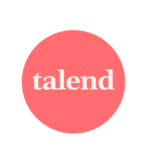Compare Python and Talend Data QualityComparison | |
|---|---|
PythonPython is a programming language that lets you work quickly and integrate systems more effectively. Find out more | Talend Data QualityTalend Data Quality gives you quality controls to profile, clean, and mask data in any format or size to deliver data governance for trusted and compliant data. Find out more |
| Try Python | Try Talend Data Quality |
| Why you should consider it | |
|---|---|
| |
| What are the benefits? | |
| |
| Things to look out for | |
| |
| Who is it for? | |
| |
| Features | |
AI Researchers
Keep up to date about Analytics offers like Python
PrivacyPython
Python: A Comprehensive Overview
Python is a powerful, high-level, object-oriented programming language.
It is an interpreted language, meaning that it is not compiled into machine code before it is run.
Python is easy to learn and use, making it a great choice for beginners and experienced developers alike.
It is open source, meaning that it is free to use and modify.
Who Should Use Python?
Python is a great choice for anyone looking to develop software, from beginners to experienced developers.
It is also a great choice for data scientists, web developers, and system administrators.
Python is used in a variety of industries, including finance, healthcare, and education.
Key Benefits and Features
- Python is easy to learn and use.
- It is open source and free to use and modify.
- It is highly extensible, meaning that it can be used to create a wide variety of applications.
- It is platform-independent, meaning that it can be used on any operating system.
- It has a large and active community of developers.
- It has a wide range of libraries and frameworks for creating applications.
How Does Python Compare to Its Competitors?
Python is often compared to other programming languages, such as Java, C++, and JavaScript.
Python is generally considered to be easier to learn and use than its competitors, making it a great choice for beginners.
It is also highly extensible, meaning that it can be used to create a wide variety of applications.
Additionally, Python has a large and active community of developers, making it easy to find help and resources.
Help & Support
- What is Python?
- Python is an interpreted, high-level, general-purpose programming language.
- What is the latest version of Python?
- The latest version of Python is Python 3.9.1, released on October 5, 2020.
- What platforms does Python run on?
- Python runs on Windows, Linux/Unix, Mac OS X, OS/2, Amiga, Palm Handhelds, and Nokia mobile phones.
- What is the license for Python?
- Python is released under the Python Software Foundation License, which is a free open source license.
- What is the official website for Python?
- The official website for Python is https://www.python.org/
- What is the Python Enhancement Proposal (PEP) process?
- The Python Enhancement Proposal (PEP) process is the process by which new features are proposed and accepted into the Python language.
- Where can I find Python documentation?
- Python documentation can be found on the official Python website at https://docs.python.org/
Talend Data Quality
Talend Data Quality is a comprehensive data quality solution that helps organizations ensure the accuracy and completeness of their data.
It provides a range of features and tools to help organizations cleanse, standardize, and enrich their data, as well as monitor and report on data quality.
Talend Data Quality is designed for organizations of all sizes, from small businesses to large enterprises.
Key Benefits and Features
Talend Data Quality offers a range of features and tools to help organizations cleanse, standardize, and enrich their data.
These include:
- Data profiling and analysis to identify data quality issues
- Data cleansing and standardization to ensure data accuracy and completeness
- Data enrichment to add additional context to data
- Data monitoring and reporting to track data quality over time
Who Should Use Talend Data Quality?
Talend Data Quality is designed for organizations of all sizes, from small businesses to large enterprises.
It is ideal for organizations that need to ensure the accuracy and completeness of their data, as well as monitor and report on data quality over time.
How Does Talend Data Quality Compare to Its Competitors?
Talend Data Quality is a comprehensive data quality solution that offers a range of features and tools to help organizations cleanse, standardize, and enrich their data.
It is designed to be easy to use and is more affordable than many of its competitors.
Help & Support
- What platforms does Talend Data Quality support?
- Talend Data Quality supports a range of platforms, including Windows, Linux, and Mac OS X.
- What features does Talend Data Quality offer?
- Talend Data Quality offers a range of features, including data profiling, data cleansing, data enrichment, data matching, and more.
- How does Talend Data Quality help organizations improve data quality?
- Talend Data Quality helps organizations identify and correct data errors, improve data accuracy, and ensure data consistency and completeness.
- What is Talend Data Quality?
- Talend Data Quality is a suite of data quality tools that help organizations ensure the accuracy, consistency, and completeness of their data.
- What are the benefits of using Talend Data Quality?
- Talend Data Quality helps organizations improve the quality of their data, reduce costs associated with data errors, and increase customer satisfaction.
- What types of data can be managed with Talend Data Quality?
- Talend Data Quality can manage structured and unstructured data, including customer data, product data, financial data, and more.
